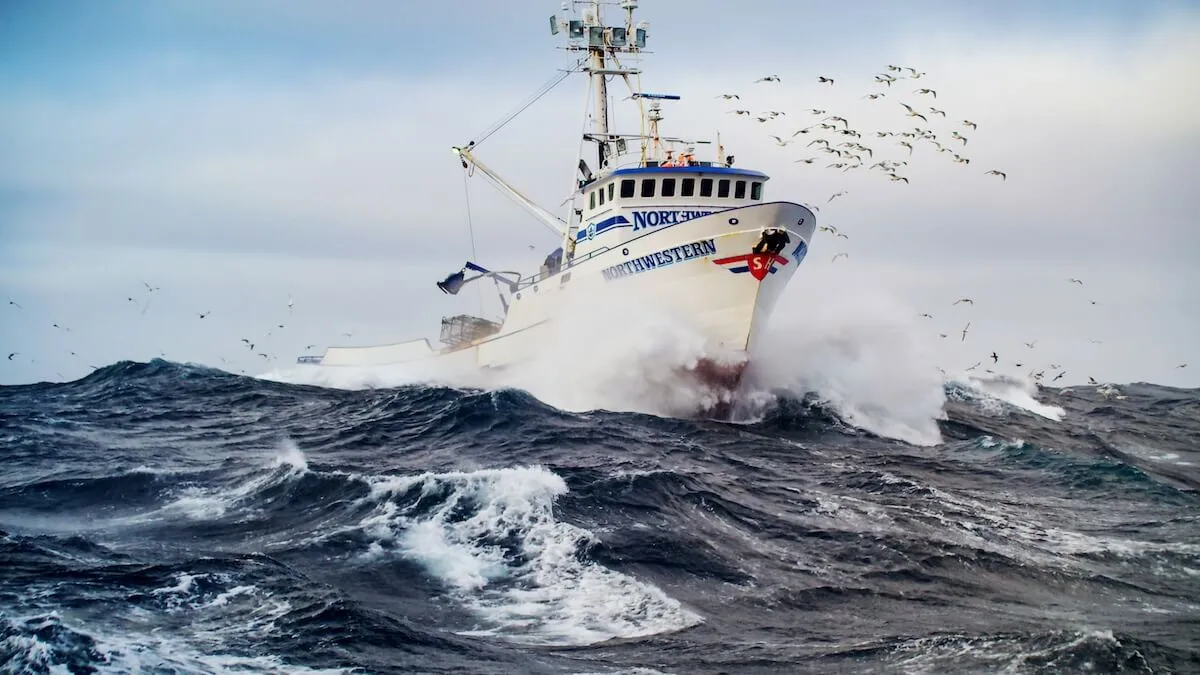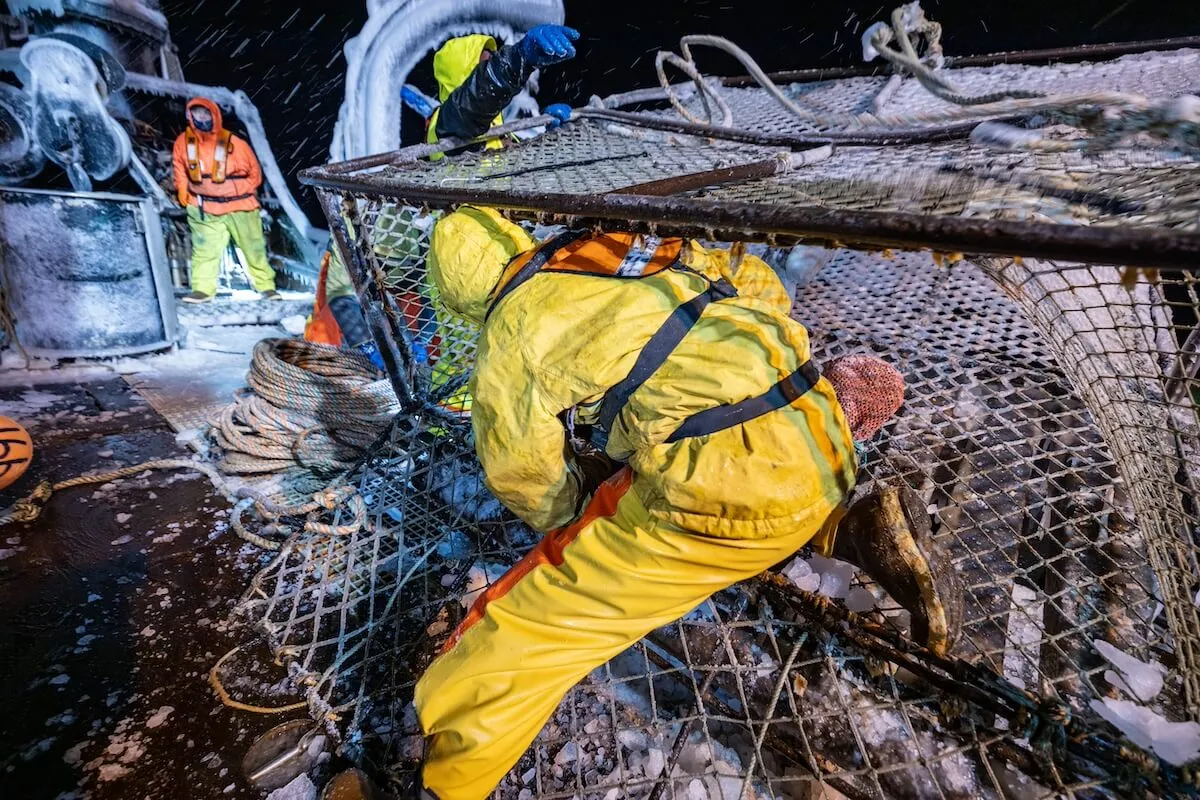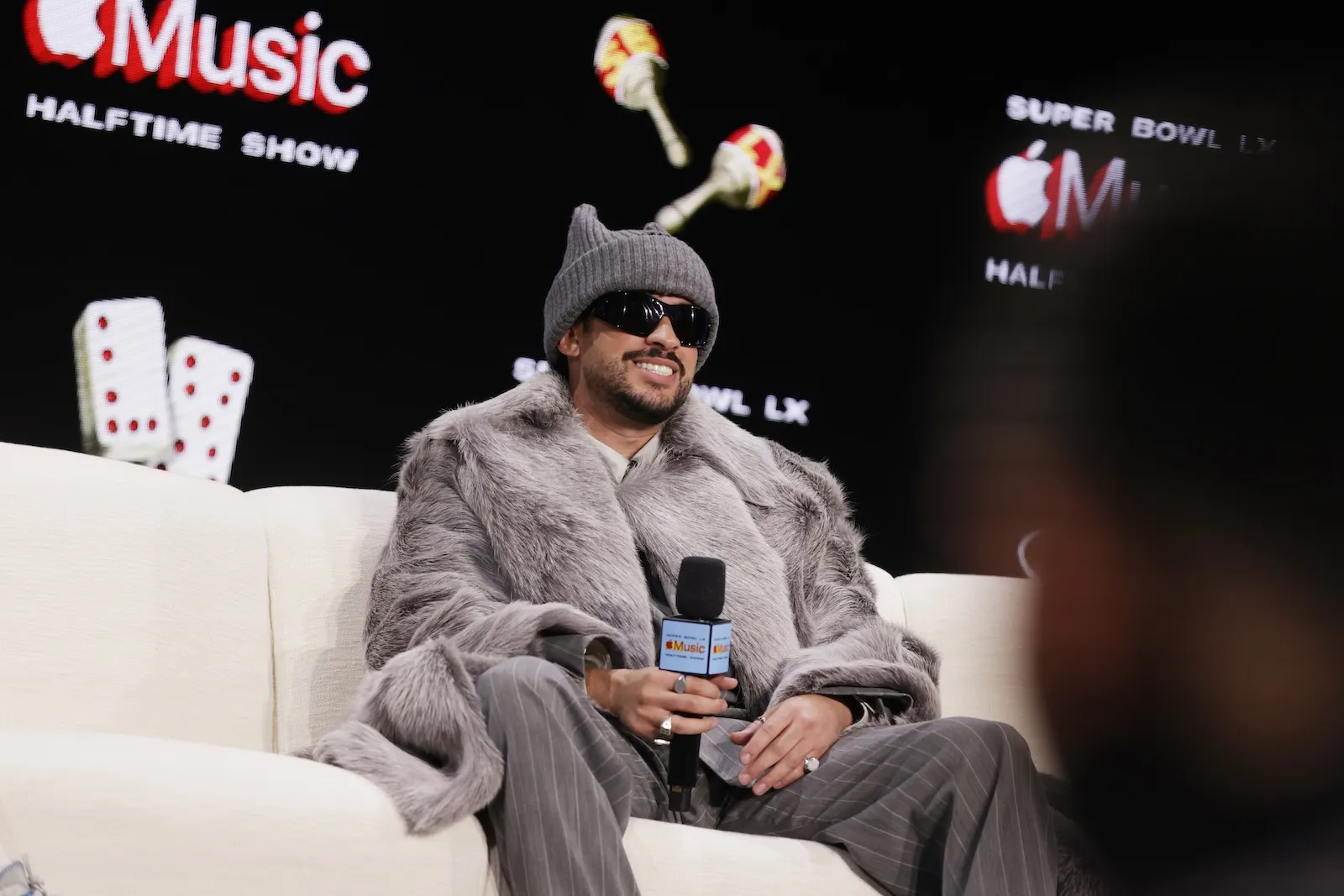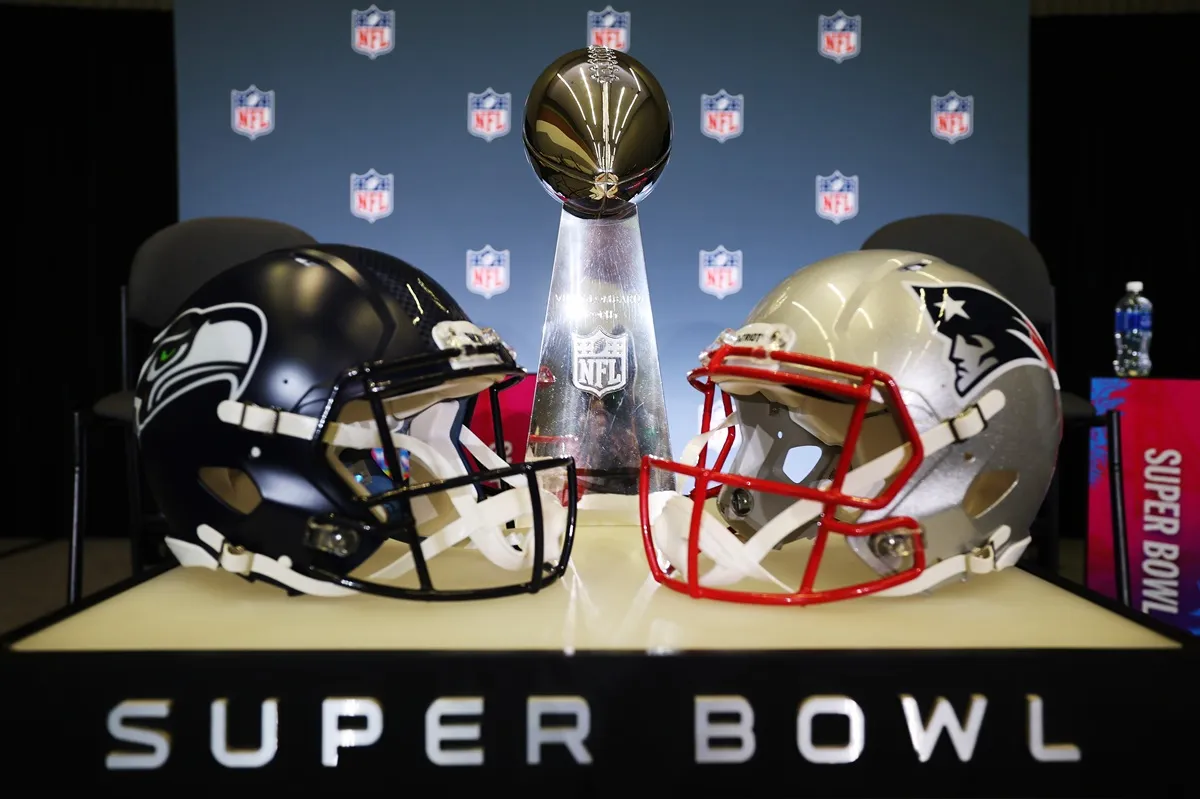
How Much Do Deckhands Make on ‘Deadliest Catch’?
Crab fishing is not a job for the weak. But for those willing to take on the risk – like the cast of Discovery Channel’s Deadliest Catch – the payoff can be substantial. Captains of Alaskan fishing boats can make good money, with Jake Anderson once sharing that he grossed more than $2 million from just 11 days of fishing. But what about the deckhands who work under them?
How much does the average fisherman earn?

Salaries for people who work in commercial fishing can vary widely. A deckhand’s earnings will usually be based on each boat’s total catch, which can be unpredictable from season to season. The median annual wage for fishing and hunting workers is $28,530, according to data from the Bureau of Labor Statistics.
‘Deadliest Catch’ deckhands can earn as much as $50,000 per season
While the median wage for fishermen is not high, there is potential to earn substantial sums of money in a short amount of time.
“For crab seasons, deckhands can typically make anywhere from $15,000 to $50,000 for a couple months of work,” Deadliest Catch cast member Kenny Ripka told People (via YouTube) in 2016.
“My guys this year, I think for 6 weeks, they made $30,000,” Gary Ripka added.
For captains, the potential earnings are significantly higher. Kenny said there were years when he made $150,000 or more in a season.
Some deckhands earn a daily rate rather than a percentage of catch
People working as part of the crew on a fishing vessel are not subject to minimum wage laws. The more experienced a deckhand, the more they are likely to earn.
“Wages are often based on a share or percentage of harvest earnings,” notes the Alaska Department of Labor. “Newcomer deckhand earnings range from 1.5% to 10% of the adjusted gross catch, depending on location and type of fishery and the skills the worker possesses.”
In some cases, deckhands might be paid a daily rate of $50 to $100 rather than a percentage of the catch.
Tough times for the fishing industry have affected deckhand pay, with some share rates trending downward, according to the state’s Department of Labor. Crew members must also cover some costs themselves, such as paying for a fishing license and providing their own wet weather gear and gloves. They may also have to cover a portion of the ship’s operating costs, including food, fuel, and ice.
Those who sign on to work on a fishing boat won’t just be fishing. “Crew members are expected to perform work on their vessel and its associated gear without additional pay for these activities,” according to the DOL. “The daily rate, a share, or percentage of the catch is considered pay for all work performed. New crew members are advised to obtain a signed work agreement or contract that clearly explains the pay and other entitlements before going to work.”
Deadliest Catch airs Tuesdays at 8 p.m. ET on Discovery Channel. Episodes also stream on Max.
For more on the entertainment world and exclusive interviews, subscribe to Showbiz Cheat Sheet’s YouTube channel.


